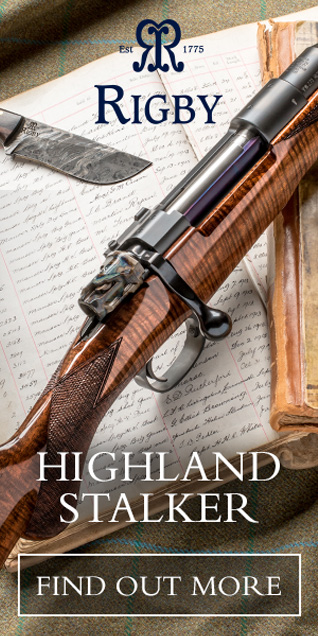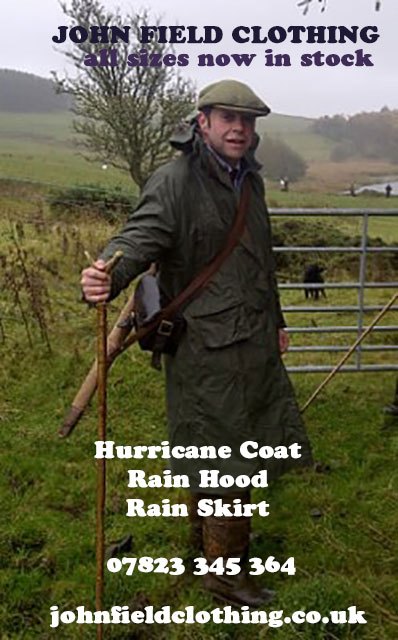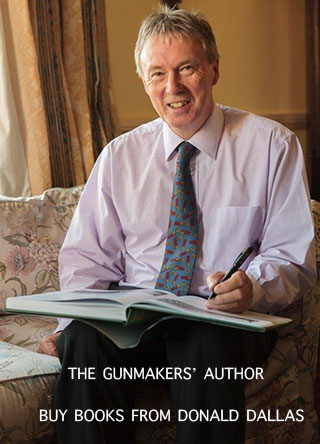Charles Boswell is a name better known in Australia than it is here in his native England.
He lived from 1850 until 1924 and during his lifetime developed a good reputation as a builder of high quality guns, especially pigeon guns. His gunmaking career started with an apprenticeship to Thomas Gooch of Hertford, a dozen miles from central London.
He set-up his first shop in London in 1872, when he was a newly-wed twenty-two-year-old. That was in Edmonton, a good thirteen miles from Marble Arch and the fashionable gunmakers of the day.

From this modest start he made his name on the live pigeon trap shooting circuit, where he proved to be a capable shot and steely competitor. Then, as now, success led to fame and Boswell's admirers were naturally drawn to the guns he competed with successfully; and wanted to buy them in the hope they too may start to emulate his achievements.
Clearly, Boswell must have known a fair amount about the desirable features of a pigeon gun and how to fit one properly. His guns of this period; the early to mid 1870s, are hammer guns, occasionally muzzle-loaders. Later, he started building Anson & Deeley action guns as well, though hammer and hammerless guns were sold side-by-side throughout teh 1880s.
Boswell had ambitions to trade internationally and set up an agency in Woolahra, Australia. His Australian sales must have been significant, as many Boswell guns remain in service there today.

Boswell eventually had agencies in a number of Australian towns and his live pigeon trap guns were highly prized. His competition guns won multiple prizes in pigeon matches in Australia, New Zealand, Monte Carlo and England. Back home, he had made enough money to occupy premises in The Strand, one of London's premier locations, though he was situated above a chemist, rather than holding a ground floor shop front, like Purdey or Holland & Holland.
While most casual gun enthusiasts can reel off the names of half a dozen top gunmakers, Charles Boswell is unlikely to be among them. He really should be. His guns are first class and he was a prominant member of the London Trade. Boswell was elected to the post of Chairman of the Gunmakers Association in 1906 and 1907. By 1914 he was heading into retirement and not in the best of health. He would then have been sixty four years of age. His son Osborne George, replaced Charles as head of the firm.

The founder's heyday coincided with the great period of invention that revolutionised the sporting gun and the era of the great country house parties that remain so evocative in our memories. Retiring as the First World War began to grind the youth of Eurpoe into dust and forever change the social order.
Truly, Boswell lied the Victorian dream, born the son of a butcher, bettering himself through trade and industry, export and social climbing, and retiring the respected proprietor of a successful London business. Ten years after stepping down as day-to-day manager of the firm, Charles Boswell died. He didn't live to see the Wall Street Crash or the Second World War, both of which inflicted crippling blows to the Gun Trade in Britain.
Boswell guns can be had today for a fraction of the price of a better-known maker. They make a very high-value purchase, if not an expensive one. Guns made before 1914 were proof tested in London, while those made after that date generally have Birmingham proof marks.

Look for guns with as much original finish as possible. Pigeon guns in particular will often be of a very high quality and worth buying, whether of the hammer gun or boxlock varieties. Live pigeon shooting was halted during hostilities from 1914-1918 and finally banned in 1923, which must have been bad for business, given that pigeon guns were a speciality.
Boswell guns invariably feel well put together, 'shootable' and robust. They look and handle like they were made by a man who knew how to shoot. I have never had one I didn't like, and I have had quite a lot.
Charles's son, Osborne George, died in 1941 and his widow continued in business until 1944, when the family owned nature of the firm ended, after seventy-two years and two generations.

Published by Vintage Guns Ltd on




